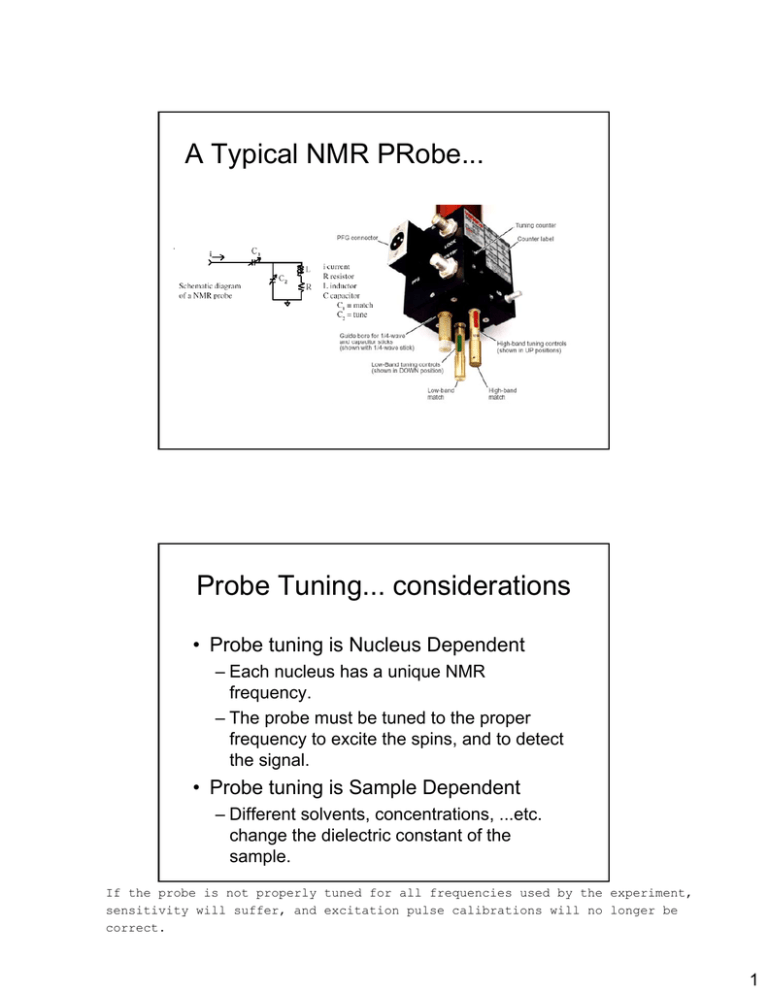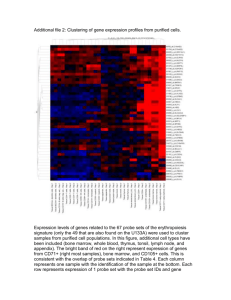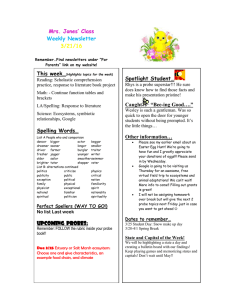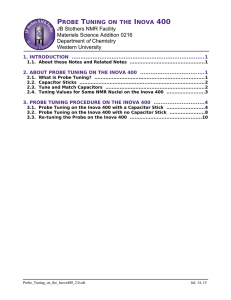A Typical NMR PRobe... Probe Tuning... considerations
advertisement

A Typical NMR PRobe... Probe Tuning... considerations • Probe tuning is Nucleus Dependent – Each nucleus has a unique NMR frequency. – The probe must be tuned to the proper frequency to excite the spins, and to detect the signal. • Probe tuning is Sample Dependent – Different solvents, concentrations, ...etc. change the dielectric constant of the sample. If the probe is not properly tuned for all frequencies used by the experiment, sensitivity will suffer, and excitation pulse calibrations will no longer be correct. 1 Probe Tuning...Mechanics The red line shows the observe frequency. The "dip" needs to be centered using the "tune" capacitor. Tune-Mode, Showing Reflected Power vs. Frequency Minimizing Reflected Power Reading on Meter Adjusting the "tune" capacitor moves the minimum in reflected power horizontally. The "match" capacitor mainly controls the depth of the minimum. Interactively adjusting "tune" and "match" will yield the global minimum in reflected power, and thereby the best sensitivity and NMR experiment performance. 2




